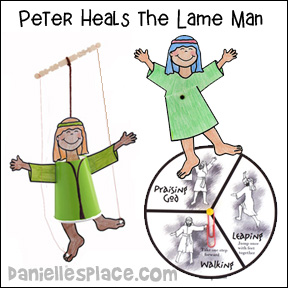

Take a bunch of hyssop and dip it in the blood that is in the basin, and touch the lintel and the two doorposts with the blood that is in the basin. Then Moses called all the elders of Israel and said to them, “Go and select lambs for yourselves according to your clans, and kill the Passover lamb. Several hundred years previously, Moses had also called all Israel to present these instructions for the all-important sacrifice: Then he laid out the parameters of the sacrifice challenge. “If the Lord is God, follow him but if Baal, then follow him”. Elijah called all Israel to gather the prophets of Baal in order to put the choice before them: A cursory look through the book of Isaiah should convince you of that if nothing else, and the top two of the Ten Commandments are clear as day on the matter. And they limped around the altar that they had made. And you call upon the name of your god, and I will call upon the name of the Lord, and the God who answers by fire, he is God.”Īnd all the people answered, “It is well spoken.” Then Elijah said to the prophets of Baal, “Choose for yourselves one bull and prepare it first, for you are many, and call upon the name of your god, but put no fire to it.” And they took the bull that was given them, and they prepared it and called upon the name of Baal from morning until noon, saying, “O Baal, answer us!” But there was no voice, and no one answered. And I will prepare the other bull and lay it on the wood and put no fire to it. Let two bulls be given to us, and let them choose one bull for themselves and cut it in pieces and lay it on the wood, but put no fire to it. Then Elijah said to the people, “I, even I only, am left a prophet of the Lord, but Baal’s prophets are 450 men. Those Israelites are in a dilemma and have to make a choice. 1īut as you can see, it sort of doesn’t matter whether they are leaping or limping, or even stuck with a food in each camp, because the meaning ends up being the same. Or it’s been suggested that it might also mean standing-with a foot in each camp. Here it has been translated as limping, but other versions have the prophets of Baal “halting” or even “leaping” between two opinions. The word pesach (פסח) doesn’t appear often in the Bible, but one chapter where it appears twice is in the story of Elijah and the Prophets of Baal.Įlijah came near to all the people and said, “How long will you go limping between two different opinions? If the Lord is God, follow him but if Baal, then follow him.” And the people did not answer him a word. Salvation is accomplished and death is averted. There’s another parallel place where the word pesach is used and both of the opposite meanings seem to fit, which I think also sheds light on the Feast of Passover. In the story of the Exodus we can think of the Angel of Destruction leaping over the lintels, or the Angel of the Lord standing guard at the door. We take it to mean “pass over”… but it’s also the word for lame. Pesach precedes the great redemption written of in the Book of Revelation, which includes similar plagues and elements, but basically, God wins.

Each plague showed God’s power over each deity of the Egyptians and their supposed domains, whether it was the river, the sun, frogs, and ultimately life and death itself. The God of Israel versus all other gods lifted up in competition and opposition. This raises the question whether the latter were composed after the formation of the book of Chronicles.Passover (or Pesach, פסח to use the Hebrew word) was, in essence, an almighty showdown. Interestingly, also in the Book of Chronicles one does not find any allusions to these stories. There are only two texts, I Sam 2,33 and Ps 52,2, which allude or refer to I Sam 22,6–23.With regard to the importance of the related events and acts this silence in the Biblical context is astonishing. A further indication consists in the fact that the reported events of the stories lack significant resonance in the corpus of the Hebrew Bible. They concern the language in use, intertextual connections and particular motifs. In this paper I try to reassess the analysis of these stories and will point to indices favoring a late date of origin for both of them. Most researchers consider both stories or at least certain parts of them old.1 For both stories few verses are regarded as secondary. I Sam 22,6–23 relates the massacre of the priests of Nob II Sam 21,1–14 is about the execution of seven descendents of Saul, as atonement for Saul’s attempt to exterminate the Gibeonites. The present article focuses on two stories dealing with acts of big blood shed.


 0 kommentar(er)
0 kommentar(er)
